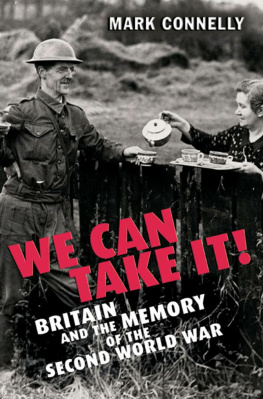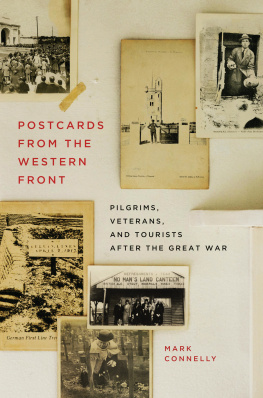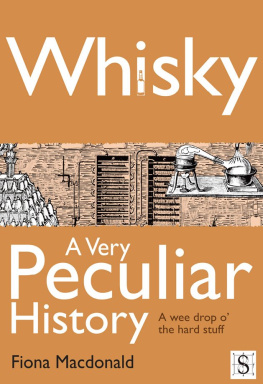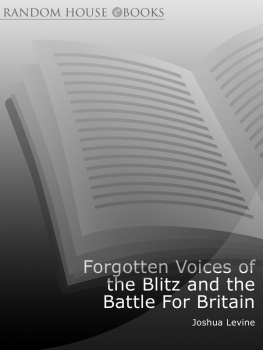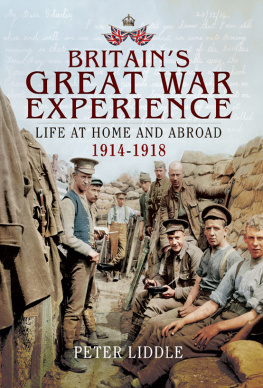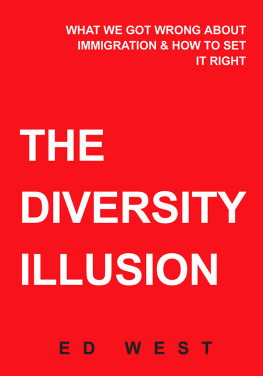First published 2004 by Pearson Education Limited
Published 2014 by Routledge
2 Park Square, Milton Park, Abingdon, Oxon OX14 4RN
711 Third Avenue, New York, NY 10017, USA
Routledge is an imprint of the Taylor & Francis Group, an informa business
Copyright 2004, Taylor & Francis.
The right of Mark Connelly to be identified as author of this work has been asserted by him in accordance with the Copyright, Designs and Patents Act 1988.
All rights reserved. No part of this book may be reprinted or reproduced or utilised in any form or by any electronic, mechanical, or other means, now known or hereafter invented, including photocopying and recording, or in any information storage or retrieval system, without permission in writing from the publishers.
Notices
Knowledge and best practice in this field are constantly changing. As new research and experience broaden our understanding, changes in research methods, professional practices, or medical treatment may become necessary.
Practitioners and researchers must always rely on their own experience and knowledge in evaluating and using any information, methods, compounds, or experiments described herein. In using such information or methods they should be mindful of their own safety and the safety of others, including parties for whom they have a professional responsibility.
To the fullest extent of the law, neither the Publisher nor the authors, contributors, or editors, assume any liability for any injury and/or damage to persons or property as a matter of products liability, negligence or otherwise, or from any use or operation of any methods, products, instructions, or ideas contained in the material herein.
ISBN 13: 978-0-582-50607-7 (pbk)
British Library Cataloguing in Publication Data
A CIP catalogue record for this book can be obtained from the British Library
Library of Congress Cataloging in Publication Data
A CIP catalog record for this book can be obtained from the Library of Congress
Set by 35 in 9.5/14pt Melior
I d like to thank the many people who have encouraged and assisted me in this project. My greatest thanks go to my partner Jacqui who has patiently listened to me express my thoughts on the subject material included in this book out loud in a never-ending stream. She still had enough stamina to read the manuscript from first to last and made a host of acute observations and suggestions. Second, many thanks must go to Professor David Welch, my colleague in the School of History at the University of Kent, for his comments on the manuscript and equally helpful advice. Anna Miller, Spencer Scott and the inter-library loans term in the Templeman Library at the University of Kent supported my search for, and presentation of, many different types of material that was greatly appreciated. I also owe a huge debt to the team at Pearson. Heather McCallum proved enthusiastic about the idea from the very start and has retained her enthusiasm for it throughout. In addition, she found two readers who submitted valuable reports. My thanks also go out to Melanie Carter at Pearson and Sarah Bury for editing the text with such care and attention and suggesting further improvements and refinements. Finally, as ever I must express my thanks to my parents and brother for their continuing interest and encouragement in everything I do.
Picture acknowledgements
The following are thanked for supplying and providing permission to use the images in this book:
Atlantic Syndication ().
T his book is about the British myth of the Second World War. It does not intend to undermine that myth because it is too deeply implanted in the hearts and minds of the British people to do that. Those who have tried to do it before, such as Clive Ponting, have singularly failed to achieve their objective.1 Rather, this book explores the way in which the British myth of the Second World War came about and is passed on. By looking at the very substance of the myth, created, as will be argued, during the war, recreated and added to ever since, the book will seek to show how and why such an interpretation came about, is so extraordinarily resilient, and has achieved such popularity. Detailed examination of the myth proves that it is far from a fabrication, as so many of its detractors claim. On the contrary, the myth contains many elements of truth and should be viewed as a particular explanation and interpretation of events rather than as a cleverly designed falsification of reality.
There are actually many myths contributing to the one, great overarching myth of the war. This central British myth of the Second World War defies precise definition. Variants can be invoked, but the general theme is as follows. In 1939 Britain falls into war unprepared and lacking a genuine leader. In 1940 Britain gained the leader it deserved in Winston Churchill, faced humiliating defeat in France but thanks to an extraordinary rallying of the nation an Armada of small boats crossed the channel to rescue the soldiers on the beaches of Dunkirk. Britain then stood alone, without allies, surrounded by the enemy. The Battle of Britain was won by the Few in the skies over the rolling countryside of southern England. Defeat in this battle forced the Germans into an indiscriminate bombing campaign. Far from causing the collapse of Britain, the people drew together in an even tighter bond and they embarked fully on their Peoples War. Surviving the blitz did not bring about victory, however. Britain went on to suffer defeats in virtually every theatre of war until Montgomery came along and won a decisive victory in the desert. After that, with new allies, it was a glorious adventure. On D-Day Monty led the way back to France, and the war culminated in the suicide of Hitler and the defeat of the Third Reich. In the Pacific the Americans dropped an atomic bomb, thus ending the war completely, although it has to be said that events in the Far East have not had a prominent profile in the British myth. In 1945 Britain deserved the applause of the world because it was the only nation to have been in from first to last. It had taken the formidable blows of the enemy unaided and won through. Celebrating its victory, it created a welfare state to provide its citizens with cradle to grave care in recognition that the people had fought and won their war. Since then Britain has fallen from its once influential position and it has been forced into closer contact with the nations it once fought.
However, it won back some of its former glory in 1982 when the nation used the myth of the war, which is in itself an extension of the definition of national character, to help it interpret events in the South Atlantic and liberate the Falkland Islands. Eight years later Britain firmly stood with its American ally to punish the unprovoked aggression of Saddam Hussein. Once again Britains armed forces revealed their quality and the resolution of a people used to taking on great odds. Thus could the Second World War and British history be used as guides to action and provide parallels for contemporary events.
The myth is part of the national memory of the Second World War. It might be asked whether such a thing as a national memory exists and how it can be proved if it does. In this book memory and myth are used to describe the desire of humans to ascertain who and what they are. This is achieved partly through making a series of choices relating intimately and solely to self and partly by linking the self to a larger collective. This process is aided by the way in which humans use the past in order to assess individual and collective identities in the present. In times of individual or collective stress and upheaval these desires increase. Collective and national memories are formed in this way: groups create their own consensus on the past and its meanings and often apply these meanings to contemporary situations. This consensus is often created through tension and accommodation. The state might well wish to influence or control the way its citizens look at the past, and individuals might be gradually won round to a new position or resist it completely. Alternatively, interpretations of the past generated among small groups or communities might eventually gain national status and support. Memory in this book therefore means a collective way of looking at the past and the conclusions drawn from it. The proof that such a memory exists is found in a variety of evidence forms and, importantly, the reception given to that evidence. For example, if a particular film about a particular event is a great success with the public, then it might be assumed that the public agreed with, or was sympathetic to, its interpretation of that event. But, taking only one source and reading it in this way cannot be regarded as conclusive in itself. What this book seeks to do is prove that a collective national memory did exist by revealing the depth and breadth of the national consensus on the Second World War through the sheer homogeneity of its popular cultural artefacts. Evidence revealing a consensus of opinion on the meaning and value of the war, and the lack of any form of truly popular dissent from it, have been sought out in a wider variety of cultural forms, particularly those most accessible to the working and middle classes. These have been used as proof of the existence of a national memory and myth that contained an inbuilt value system recognised and understood by the British people (and that whether people were conscious of it or not it therefore had a political tinge to it). It is never assumed that this memory was owned and perpetuated by one particular group within society; or that it can be ascribed absolutely and without qualification to all British people, but it is argued that its broad outlines and salient points can.2


